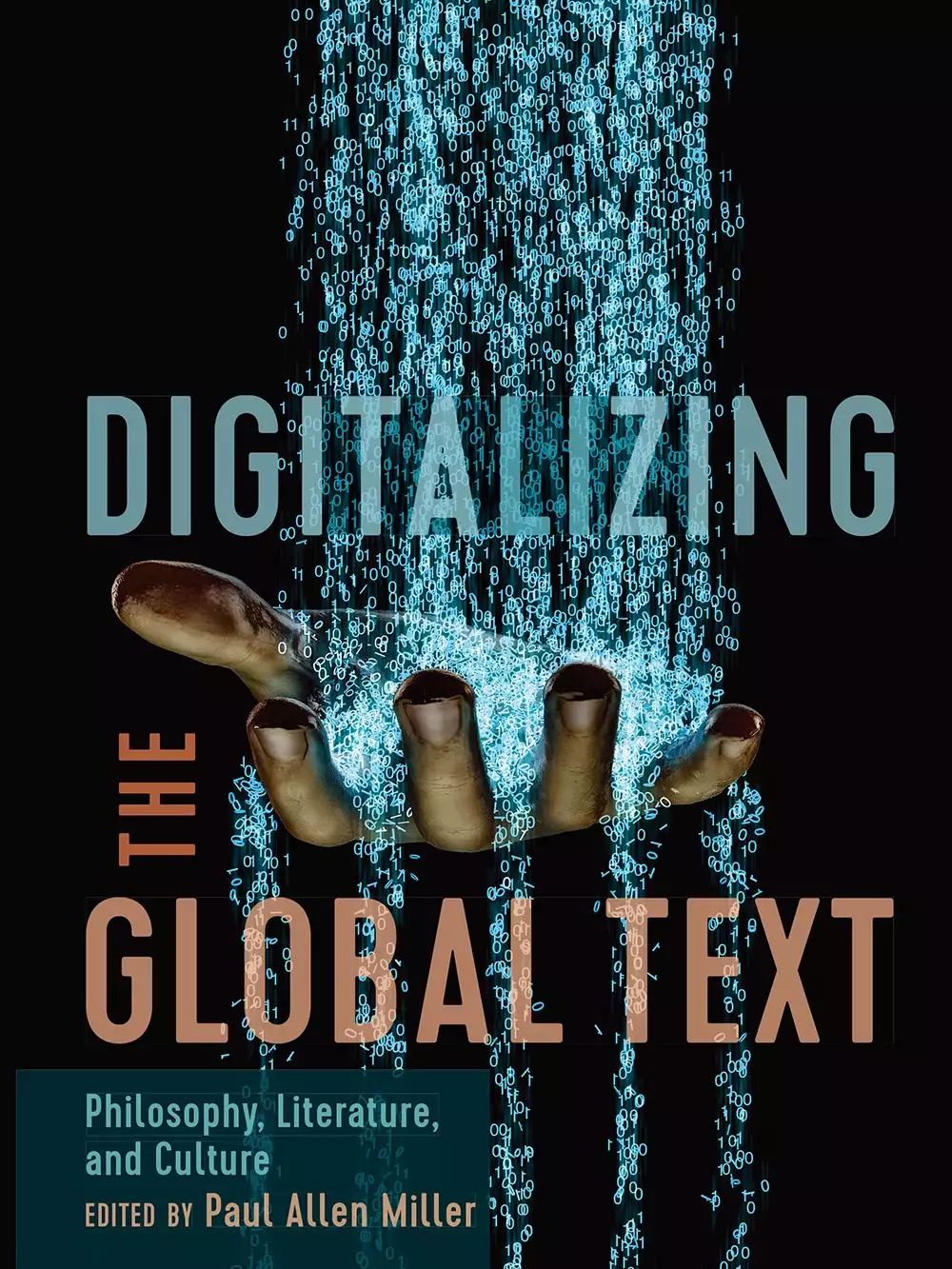Reason of digital di的問題,透過圖書和論文來找解法和答案更準確安心。 我們找到下列懶人包和總整理
Reason of digital di的問題,我們搜遍了碩博士論文和台灣出版的書籍,推薦PaulAllenMiller,AlexanderBeecroft,BennettYu-HsiangFu,NicolasVazs寫的 Digitalizing the Global Text:Philosophy, Literature, and Culture 可以從中找到所需的評價。
明志科技大學 視覺傳達設計系碩士班 林金祥所指導 張偉傑的 The State of Indonesian Horror Cinema Throughout the Decade, from Early 2000s to Early 2010s (2021),提出Reason of digital di關鍵因素是什麼,來自於。
而第二篇論文國立臺灣科技大學 管理學院MBA 吳克振所指導 陳榮美的 東南亞消費者對可持續有機保養品購買和支付更多費用的意願之研究 (2021),提出因為有 Theory of Behavioural Control、Organic Skin Care、Purchase Intention、Willingness to Pay More、Southeast Asia的重點而找出了 Reason of digital di的解答。
Digitalizing the Global Text:Philosophy, Literature, and Culture

為了解決Reason of digital di 的問題,作者PaulAllenMiller,AlexanderBeecroft,BennettYu-HsiangFu,NicolasVazs 這樣論述:
A few years ago globalism seemed to be both a known and inexorable phenomenon. With the end of the Cold War, the opening of the Chinese economy, and the ascendancy of digital technology, the prospect of a unified flow of goods and services and of people and ideas seemed unstoppable. Yes,
there were pockets of resistance and reaction, but these, we were told, would be swept away in a relentless tide of free markets and global integration that would bring Hollywood, digital fi nance, and fast food to all. Nonetheless, we have begun to experience the backlash against a global world
founded on digital fungibility, and the perils of appeals to nationalism, identity, and authenticity have become only too apparent. The anxieties and resentments produced by this new world order among those left behind are oft en manifested in assertions of xenophobia and particularity. The “other”
is coming to take what is ours, and we must defend ourselves! Digitalizing the Global Text is a collection of essays by an international group of scholars that situate themselves squarely at this nexus of forces. Together they examine how literature, culture, and philosophy in the global and dig
ital age both enable the creation of these simultaneously utopian and dystopian worlds and offer resistance to them. 好評推薦 “Digitalizing the Global Text is a vibrant volume that explores the paradoxes of the local, the global, and the universal, with particular emphasis on the digital humanities.
This wonderful collection of essays from an accomplished global group of contributors will be of wide interest to humanities scholars.”--- Jeffrey R. Di Leo, University of Houston–Victoria “Traversing historical periods and national boun d aries, with topics ranging from Plato to ‘Gang nam Style
,’ the essays in Digitalizing the Global Text represent a vast array of perspectives while resisting the tendency to fetishize or hype the global. This collection represents a major contribution to the study of world literatures and cultures.”--- ROBERT T. TALLY JR., Texas State University “Digit
alizing the Global Text is a splendid contribution to the ongoing work of challenging globalism. Refusing to settle for its dominant neoliberal form, marked by the digitization of knowledge and homogenization of cultural production, this volume pursues alternative forms of life—recalcitrant ones—tha
t do not sacrifice the singularities of the local in their illustration and enactment of the global.”--- ZAHI ZALLOUA, Whitman College “Digitalizing the Global Text stages a crucial intervention into discussions and debates around globalization and digitalization. How can we begin to imagine anew
a globalization and a digital sphere that do not merely translate into capitalist profiteering? This is the crucial question at once asked and answered by this collection.”--- CHRISTOPHER BREU, author of Insistence of the Material “This is a timely and forthright collection on what happens to th
e cultural within forms of globalization and globality. Essays address not just the impact of popular culture but also attempt to understand how thinking itself is recalibrated between the shifting scales of local and global. A template for global cultural critique.”--- PETER HITCHCOCK, Baruch Colle
ge, City University of New York
The State of Indonesian Horror Cinema Throughout the Decade, from Early 2000s to Early 2010s
為了解決Reason of digital di 的問題,作者張偉傑 這樣論述:
Horror films in Indonesia were considered bad b-grade horror films by the Indonesian community itself. The reason was because of the female exploitation in Indonesian horror films. In recent years, Indonesian horror films have seen a change in quality which focusses more on the u
rban legend horror and strays away from exploiting women. The aims of this research were to study the opinions of Indonesian youth general audience and film critic on the subject as well as the differences between them. Data were collected using in-depth focus group i
nterview on both group of participants. The data analysis was done using open, axial, and selective coding process. Results show that both audiences and expert recognize an improvement in Indonesian horror cinema because of a select few outstanding films, but emphasize that there are stil
l a lot of Indonesian horror films that aren’t the same quality as those select few.
東南亞消費者對可持續有機保養品購買和支付更多費用的意願之研究
為了解決Reason of digital di 的問題,作者陳榮美 這樣論述:
Southeast Asia has been considered as a new land of opportunity that has a lot of room for growth in the beauty and personal care market. Even after Covid-19 struck, the sales in both Indonesia and Vietnam increased through digital sales. This means Indonesia and Vietnam have promising market pros
pects for sustainable organic skincare. The research study was conducted by including two groups, a total of 239 valid responses were collected from the control group, whereas 309 valid responses were collected from the experimental group. Structural Equation Model (SEM) was employed to analyze the
data using SPSS AMOS. The results showed beauty and environmental consciousness, as well as attitude and perceived value as mediating variables playing an important role in the purchase of organic skincare products in Indonesia and Vietnam. In addition, this study also found that green messages that
trigger consumer beauty, health, and environmental consciousness can lead to positive consumer behavior toward sustainable organic skincare products.